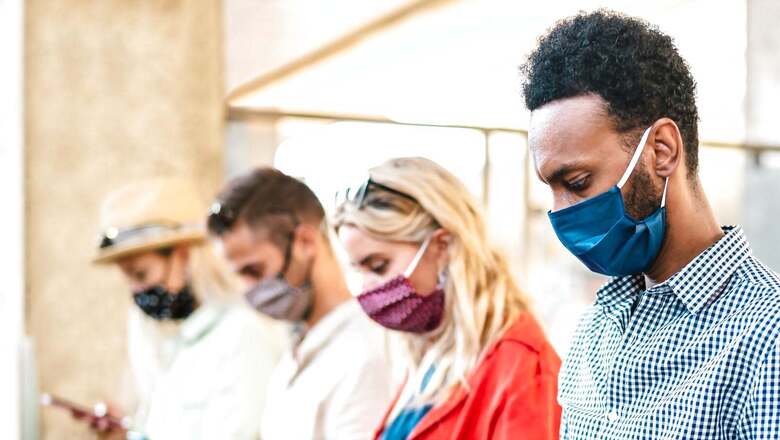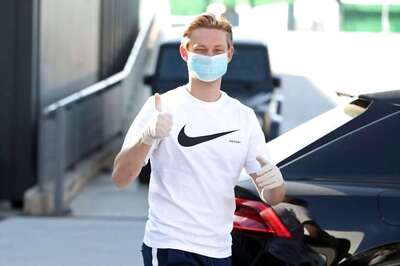
views
Current debates over vaccine passports and mandates are troubling beyond the privacy concerns bioethicists have raised. This is especially true when you consider people with medical exemptions have become subject to reasonable accommodations, a term many scholars have debunked for its regulatory power with regards to disability and social and cultural integration. While the Canadian government has invested in clinical studies to obtain reliable data on vaccine effectiveness for cancer patients and people with autoimmune diseases, studies tackling the social parameters of everyday decision-making and social inclusion in response to public health policy are just emerging.
Within an evolving policy framework of managing the crisis, I am specifically interested in how existing health disparities inform the vulnerability of immunocompromised people. How will their lives unfold on the uneven social and political terrain of COVID-19?
Illness, pain, loss and social inequality
If I have learned one thing during the last two decades of researching social relations among racialized communities grappling with collective trauma, it is that politics, law and medicine work in ways that lay bare the social precarity of those most vulnerable to the effects of policy. Studying the everyday acts of overcoming trauma, whether it’s in the context of insecure migration or political violence, I found that forms of coping and recovery are often fragile, ambivalent and mostly invisible. Recognition of these everyday struggles does generally not occur in the public realm.
Traumatic events relate to the chronic conditions of social suffering, and experiences of illness, pain and loss remain embedded within broader structures of social inequality. The global pandemic presents us with precisely this scenario.
COVID-19 has exacerbated existing inequalities, creating pathways of harm and destruction that reflect socioeconomic differences, structural racism and hazardous living conditions. And this is not the first disaster to do this.
An alternative to immunocompromised
The term immunocompromised lumps together people with various, multi-layered and complex health conditions without taking into account social identities and the conditions of everyday existence.
I suggest the use of immune-insecure people because it retains connotations of social life that points beyond the purely biomedical. The term acknowledges that those suffering from autoimmune disease or other chronic illnesses have to perform ongoing illness work. Illness work highlights the active processes of illness management, care taking and making do under conditions of chronic illness. Because herd immunity won’t likely be reached in the near future, social ramifications for people who are immune-insecure can be significant. They have to navigate a landscape of risk and precarity that is fundamentally different from fully vaccinated people.
Concerns for immune-insecure people
For immune-insecure people, decisions about when to be vaccinated or how to participate in social activities (if vaccinated) can vary greatly due to illness, treatments, medical advice and social capital. Current conversations include whether vaccines are actually effective for immune-insecure people and that medical exemptions for not getting the vaccine will be recognized. But focusing the debate on vaccinations alone ignores certain complexities of being immune-insecure.
Medicine doesn’t always provide straightforward answers for illnesses that are just partly understood. Treatments usually consist of immunosuppressant therapies with a broad spectrum of effectiveness, accessibility and affordability. Immune-insecure people are left to navigate these areas with a high degree of uncertainty and, often, feelings of powerlessness. Medical sociologists and anthropologists have further demonstrated that such insecurities don’t simply result from medical status. Immune-insecure people’s encounters with medical institutions and professionals during times of crisis and rehabilitation must be equally weighted.
There are important structural factors that determine health outcomes, and unconscious biases in medicine can determine how an individual might receive care, what form of medical treatment is offered and what discretion is used when medical exemptions or disability certificates are issued. Medicine is also a field ripe with cultural tropes that highlight survivor stories and illness warriors. The American Platelet Disorder Support Association features ITP warrior stories for patients with immune thrombocytopenia (one of the rare side effects of COVID-19), while many other patient support groups for cancer and autoimmune diseases follow suit with similar messages.
While it can enhance experiences of social approval, the John Wayne-like approach can also be detrimental, since patients’ experiences with recurring cycles of illness and recovery can hardly fit a single norm.
Messy terrain of everyday life
For immune-insecure people, everyday life was complicated long before the pandemic. They knew the risks that even minor infections had for underlying conditions to flare up, put them on new medications or necessitate hospitalization. They knew that each hospital stay would lower their self-esteem, expose them to new health risks, pause or disrupt their social relations and activities and put their family members under heavy burdens often for months at a time.
Attending social events, going to a restaurant, sending children to play dates, assuming roles in volunteer organizations, playing their favourite sport or simply making new friends were things that previously required safety screenings. For immune-insecure people, prolonged periods of social isolation have meant both a familiar terrain and a new spectre of fear and anxiety. No doubt, vaccinations mean more safety, yet many have conditions that entail difficult choices. Everything now is about assessing risks.
We must pay attention to the different meanings of risk and social stigma for immune-insecure people. We are not getting the full picture of what they are dealing with during COVID-19 if we focus on vaccination rates, passports and mandates.
(Michael Nijhawan, York University, Canada Toronto)
Read all the Latest News, Breaking News and Coronavirus News here.
















Comments
0 comment